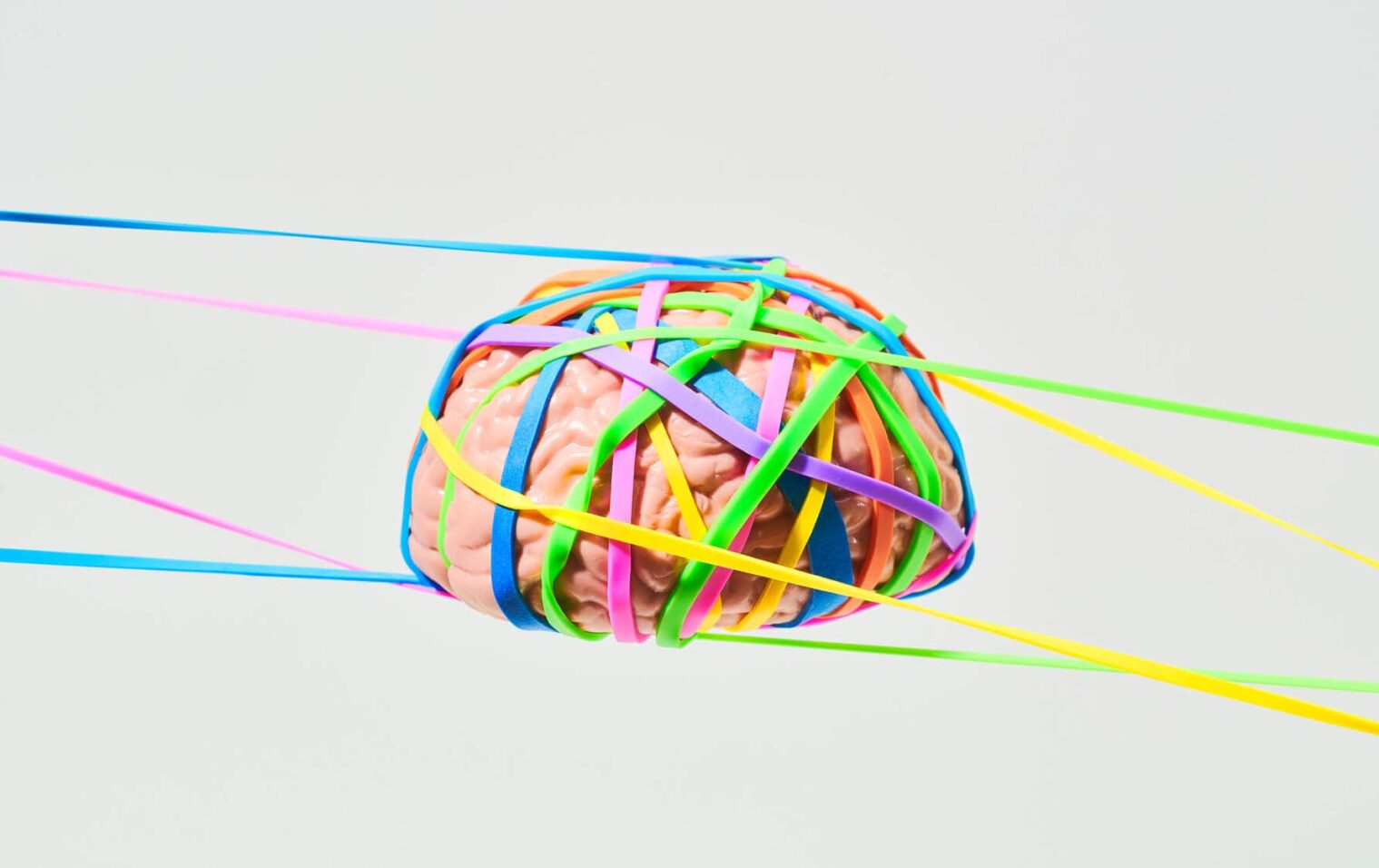
Less chaos, more focus: How mindfulness helps in everyday life
Mindfulness is officially “the non-judgmental awareness of present perceptions”. It builds on the following pillars: Guiding the attention, awareness of one’s own body, self-awareness and controlling our emotions.
For many people, mindfulness is now part of everyday life and an integral part of their routine. Be it a morning meditation to wake up, conscious awareness of the body, anchoring oneself in the moment or mindfulness in the office – many of us want to invest more and more in being more mindful instead of just chasing the next moment.
In our last article we covered the concept of mindfulness, the associated stereotypes, and even gave you an exercise to get started.
In this article, we would like to explore the effects mindfulness is known to have on the body and soul. In fact, psychologists and medical professionals have also discovered the positive effects of mindfulness and are therefore increasingly adopting it in therapeutic contexts.
As part of an 8-week training programme for mindfulness-based stress reduction – also known as MBSR – many people around the world are learning to cope with difficult life events and adversities with the help of mindfulness.
Its effectiveness has already been proven by numerous scientific studies. Researchers have found, among other things, that people who regularly practise mindfulness feel less stressed and are better able to tackle the challenges of daily life. Mindfulness can even help manage chronic illnesses, pain and psychological distress such as depression or burn-out.
Your body will thank you for practising mindfulness. Here is why:
1. You get sick less often and get over a cold faster.
You may have sneered at people who use meditation to prevent or treat illness, but there is now scientific evidence that a regular meditation practice can help you catch less colds and combat the flu, for example.
A team of researchers has found that regular meditation and mindfulness practices can reduce the chances of catching a cold or flu.
Most importantly, employers who facilitate mindfulness practices for their employees will equally benefit from it since their staff will be less susceptible to colds and will naturally recover more quickly if they do fall ill. Sounds like a win-win situation, doesn’t it?
Want to see the evidence? You can read the study here .
2. Better sleep.
Besides headaches and back pain, sleep disorders are the most common psychosomatic illnesses in Germany. In fact, they account for the most common mental health condition. So, it seems that we tend to get caught up in our heads, especially at night.
The MBTI (Mindfulness Based Treatment of Insomnia) is a therapy programme that has been scientifically tested and combines psychology and mindfulness techniques. The goal here is to separate the negative thoughts from the sleep-disturbing consequences in order to learn new behavioural patterns during our sleep.

And it seems to work! In a study, researchers found that mindfulness training helps people sleep more soundly. It increased the overall quality of sleep, which in turn helped the subjects to better manage stress.
This has a positive effect, especially when the mood in the team reaches rock bottom, we go into a defensive mode and tend to get carried away. A good night’s sleep will help you take a step back and see the big picture again.
3. Your body will generate less stress.
We now have a lot of scientific evidence that mindfulness reduces stress levels in the long term. This in turn affects your well-being, your environment and your physical health. You will notice that small “aches and pains”, as well as illnesses, heal better and faster if you keep your stress levels low.
At a research institute in Davis, California, a study was conducted on mindfulness and the release of cortisol as part of the Shamatha project, which was also advocated for by the Dalai Lama.
Within the project, test persons were trained by a teacher to breathe mindfully, to observe their mental states in a non-judgemental way and to thereby strengthen their awareness.
After three months of intensive training, the research team found that there is a correlation between the level of mindfulness (high) and the release of cortisol (low). Cortisol is produced in the adrenal cortex and, alongside adrenaline, is the best-known stress hormone.

The benefits of mindfulness for the mind
What you can expect:
There are a number of fantastic changes to expect when you choose to bring more mindfulness into your life. We have picked out a few for you:
1. You will learn more about yourself
Pain, despair and anger are part of life – but they do not have to define you, your behaviour and your reactions.
Just think about that one colleague who always drives you up the wall as soon as they open their mouth. Mindfulness will help you to learn about yourself in extreme situations and change your attitude towards extreme mental or physical situations.
The keyword: resilience. The more mindful you become of yourself and your feelings, the less likely you are to lose your cool.
And soon you might see just what this colleague triggered in you and what it evoked in you. As this has been unleashed, your triggers will gradually shrink and more peace enters your life.
2. Better understanding of your environment
Better awareness of oneself helps to see others with eyes of compassion. Where you once saw a rabid colleague ranting for no reason, you may soon see someone who is hurting and doesn’t know how to deal with extreme situations.
It will help you understand the behavioural patterns of the people around you and thus also peek into their “programmes”.
A study, conducted at Harvard University, found that regular mindfulness training strengthens our compassion, making us more willing to help others in emergency situations.
3. More productivity and focus in the day-to-day
The more you practise living in the moment, the less your thoughts will wander to the right, left, or up and down.
You will notice that your ability to concentrate improves and you have a sharper focus – whether in conversations with friends or in meetings.
This is a real blessing, especially in the home office, where the potpourri of distractions is vast: doing the laundry, some cooking, a power nap or checking social media. Rightly so, many people quickly lose focus, set the wrong priorities and get lost in small, unimportant things.
Mindfulness has been proven to help you find focus, quiet the outer noise and concentrate on one thing at a time – with all your senses.
4. Your creativity starts to flow
To be creative, the mind needs peace and stability. Creativity is the creative power to go new ways and find new solutions. When our head is full of worries and thoughts about yesterday and tomorrow, the mind cannot focus and exercise its problem-solving ability – which, by the way, is seen as a real superpower in any job.
Mindfulness can help you to centre the mind and thus set it free to explore new paths.
This has also been supported by a study conducted by psychologist Lorenza Colzato at Leiden University. Her team exposed the participants to two different types of meditation: The “open monitoring meditation” and the “focused attention meditation”. After that, participants had to take a creativity test.
Participants who took part in the open monitoring meditation did better than the rest. This mainly concerned the areas of flexible thinking, generating a large number of ideas but also the originality of the ideas. As such, the participants had more creativity after the open monitoring meditation.
Remember: life is happening right now in this moment
The tricky part is that we can get entangled in our thoughts very quickly. Why is that a problem? Because we then tend to get stuck in the past or worry about the future.
This unintentionally pulls us out of the moment and we keep dodging the infamous “here and now”. Sometimes to the extent that we actually only exist in our mental constructs or smartphones instead of living life itself.
Yet life has so many beautiful moments waiting for us, to be felt and perceived in a mindful way: A smile from a stranger on the street or in the supermarket, gestures of gratitude from a colleague, spontaneous singing in the shower, dancing in your living room, surpassing yourself in yoga, sunshine on your face, letting off some serious steam in the gym or appreciating the beauty of nature.
Those experiences are just what we need in times like these. To remind us just how beautiful life is. The difficult days also need to be felt and acknowledged. Let me tell you one thing: If you open the door to mindfulness, sadness, anger and helplessness will also want to make their way through. And if you are ready to face them, your happiness is bound to increase. You’ll feel it – promised!
To many wonderful mindful moments,
Your Humanoo team